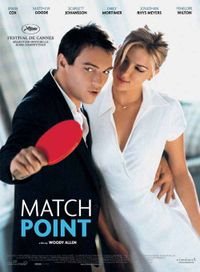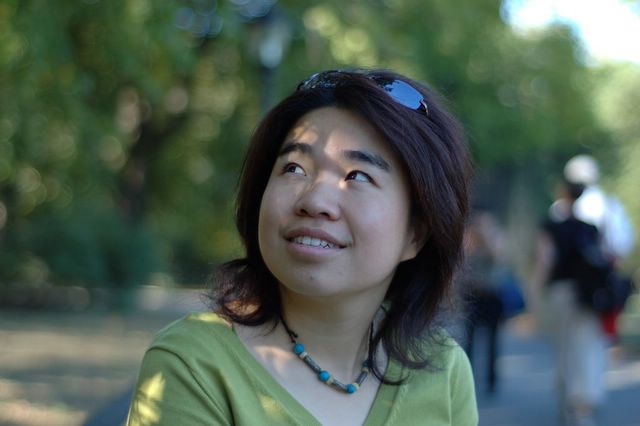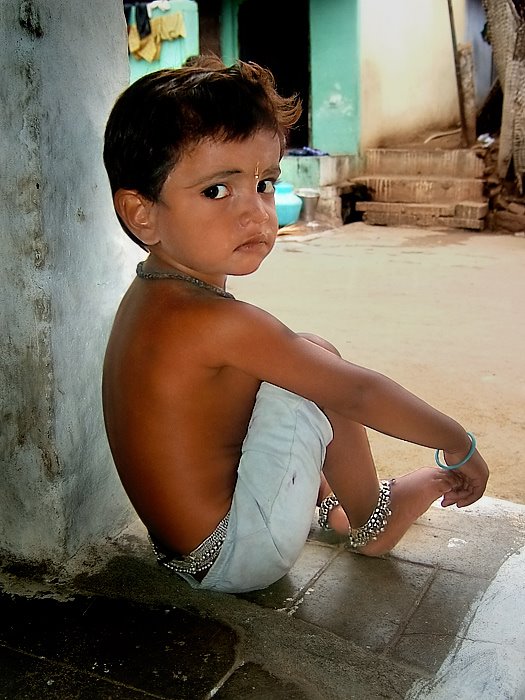
Wikipedia introduction about Match Point (2005, Woody Allan)
"The story is a fable about the role that luck plays in determining everyone's destiny. As protagonist Chris Wilton notes in an opening voice-over: The man who said "I'd rather be lucky than good" saw deeply into life. People are afraid to face how great a part of life is dependent on luck. It's scary to think so much is out of one's control. There are moments in a match when the ball hits the top of the net and for a split second it can either go forward or fall back. With a little luck it goes forward and you win. Or maybe it doesn't and you lose.
Structural and thematic similarities exist between the movie and two novels, Dreiser's An American Tragedy and Dostoevsky's Crime and Punishment. The movie also bears notable similarities in plot and theme to a previous movie of Allen's, Crimes and Misdemeanors. Perhaps the most influence stems from the 1964 Truffaut film The Soft Skin, in which a married man also has an affair that ends up in shotgun related murder.
The film's plot mirrors the novel An American Tragedy and the film A Place in the Sun, which also involve a poor man who, through the possibility of marriage to a wealthy woman, resorts to murdering a poor pregnant girlfriend in order to preserve his chances at a new life of wealth and privilege.
Opera connoisseurs have noted that the arias and opera extracts make an ironic commentary on the actions of the characters and sometimes foreshadow developments in the movie's narrative. The Caruso arias are intercut with extracts from contemporary performances which the characters attend over the course of the film. There are scenes at the Royal Opera House and elsewhere performed by opera singers, accompanied by a piano and not, as is usual, by an orchestra. Arias and extracts include work by Verdi (in particular Otello and Rigoletto), Donizetti's L'elisir d'amore, Bizet's Les pêcheurs de perles, Carlos Gomes' Salvatore Rosa and Gioachino Rossini's Guillaume Tell. "
If I only allow to use three words to describe this film, they will be: luck, lust and lost. It is a typical Woody Allan film, although it immediately reminds me about Montgomery Clift's A Place in the Sun (1955). I love Montgomery Clift's performance in that classic tragedy of social climber: he played a role tortured by ambition and tried to find aim of his life. Clift himself is a tragic figure in his off-screen life and his life had been described as a life-long pursuing of suicide. The darkside of his mind made him a perfect actor. In comparision, Jonathan Rhys-Meyers is a different type of actor. He wins his fame as independent film actor early in his life and his unforgettable role in Velvet Goldmine (1998) makes him a symble of fatal pop star. He also acts in some not decent films, such as Mission Impossible III. He is not afraid to show his sensitivity and vulnerable in moives, but his weakness makes him a more convincing character.
Match Point resembles the Closer in some respect. In both films, individuals try to find relationship which could satisfy both their body and mind and fail both ways. In Closer, Jude Law played this sick writer who could have win his true love but took a shortcut and ruined the whole thing. In Match Point, Chris (by Jonathan Rhys-Meyers) would have the option of not marrying Cholye and choose Noah, but he could not afford to lose the quality of life his marriage to Cholye conveyed. What differs in the two films is that in Closer, the film investigates the minds of males and females in the relationship; but in Match Point, we only observe Chris's mind. On the surface, the film emphasizes the importance of luck in individual's life; but the underlying theme is the unavoidable lust which pushes people ahead.


没有评论:
发表评论